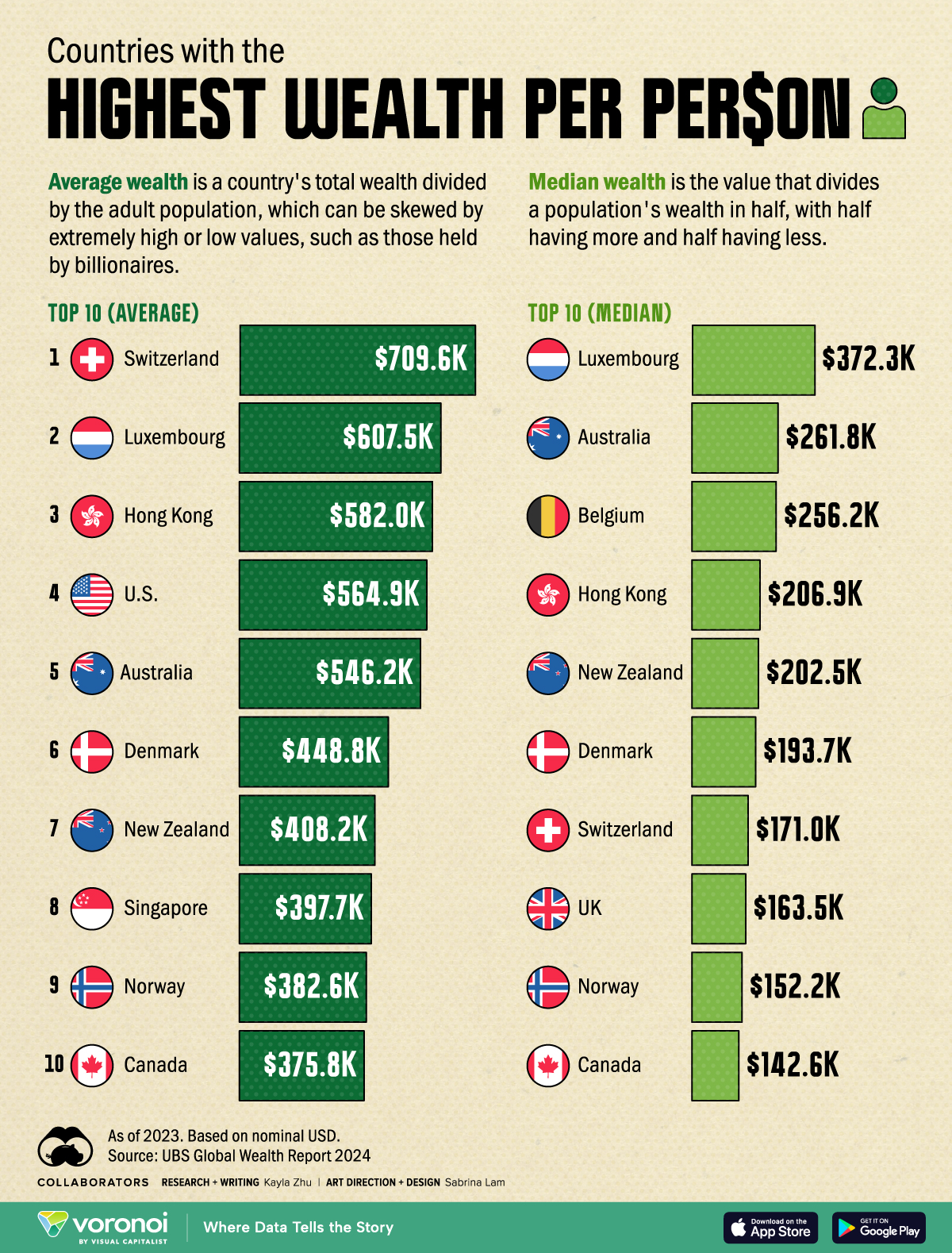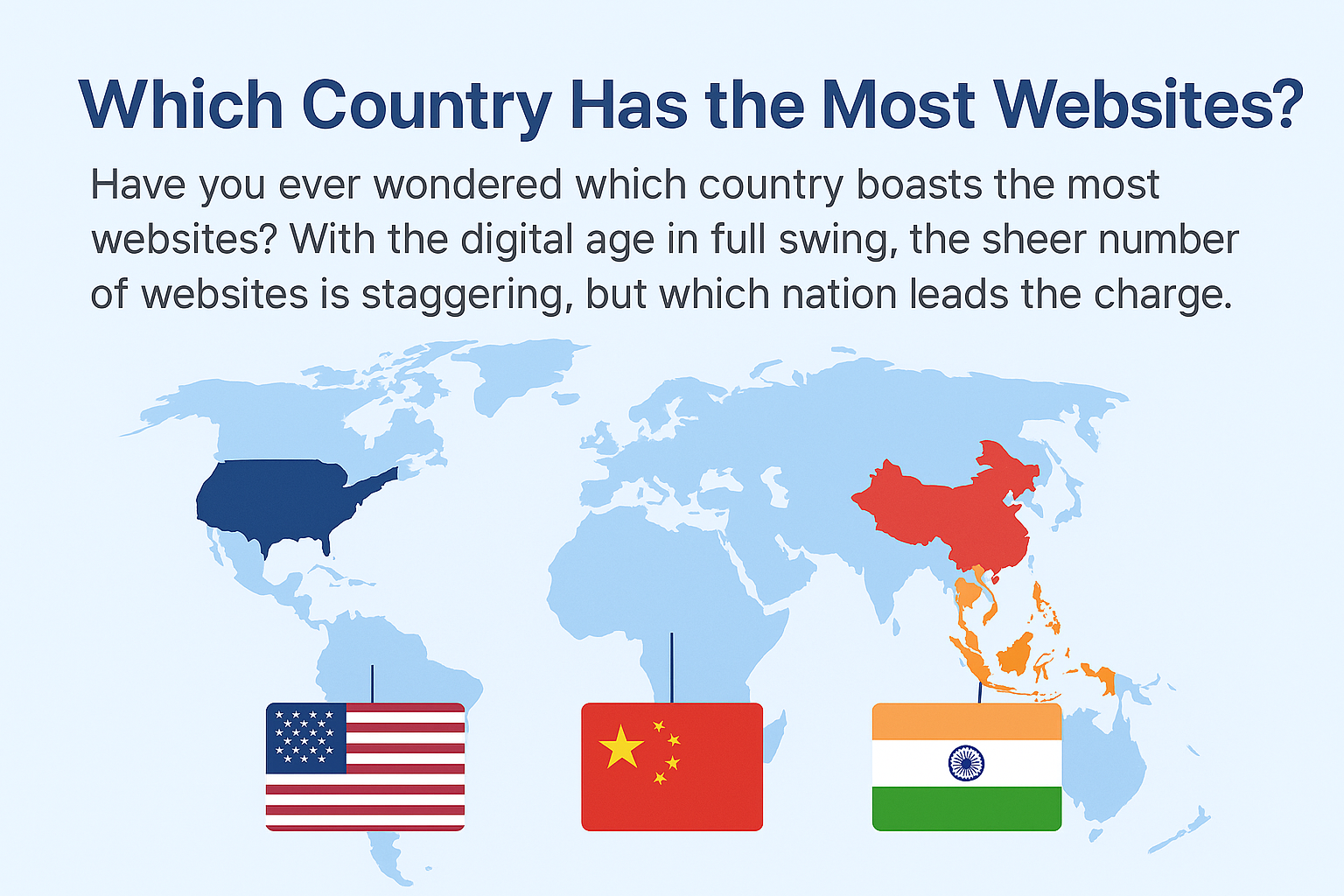Have you ever wondered which country boasts the most websites? With the digital age in full swing, the sheer number of websites is staggering, but which nation leads the charge?
You might be surprised by the answer, and discovering it could open new opportunities for your online ventures.
Whether you're an aspiring webmaster or a seasoned digital entrepreneur, understanding where most websites originate can give you insights into global trends and potentially guide your next move.
Speaking of your online ventures, if you're looking to create or expand your own digital presence, a reliable hosting service is crucial. Hostinger offers top-notch web hosting services designed for ease and efficiency. With features like free domain registration, unlimited SSL certificates, and AI-powered tools for SEO content creation, Hostinger makes it easy for you to get started.
Plus, there's a special offer available that you won't want to miss. Explore Hostinger’s 95% discount now and take a step towards building your dream website today. Dive into this article to discover not only which country leads the website count but also how this knowledge can benefit you.
Let's unveil the web's global landscape together!
Introduction To Website Distribution Across Countries
In the digital age, understanding website distribution is crucial. Every country contributes to the web's vast landscape. Some have more websites due to technological advancement and economic factors. Analyzing which country hosts the most websites offers insights into global connectivity and digital trends. Let's explore the global landscape and the importance of understanding website distribution.
The Global Landscape Of Websites
The internet is a vast network with billions of websites. Each country has a unique share. The United States leads with a significant number of websites. This dominance is due to advanced technology and a strong digital economy. China and Germany follow, contributing massively to the web. The table below illustrates the top countries by website count:
| Country | Number of Websites |
|---|---|
| United States | 1.8 billion |
| China | 840 million |
| Germany | 220 million |
Why Understanding Website Distribution Matters
Knowing which countries have the most websites helps in market analysis. Businesses can tailor strategies based on digital presence. The distribution of websites indicates a country's technological prowess. It reflects internet accessibility and digital literacy. Marketers use this data to target regions effectively.
Understanding distribution helps in resource allocation. Countries with more websites may offer better hosting services. For instance, Hostinger provides excellent hosting options worldwide. Their user-friendly platform suits beginners and professionals alike. With features like free domain and SSL certificates, it stands out. Hostinger's multilingual support and AI tools enhance the user experience.
Website distribution insights aid in predicting future digital trends. They help governments and organizations plan infrastructure development. As the digital landscape evolves, staying informed is key.
Factors Influencing The Number Of Websites In A Country
The number of websites in a country is shaped by various factors. These factors determine how accessible and widespread the internet is for its citizens. Understanding these elements can help explain why some countries have more websites than others.
Internet Penetration And Accessibility
Internet penetration plays a crucial role in website numbers. Countries with high internet access see more websites. Access to affordable internet plans encourages more people to create sites. Public Wi-Fi availability also boosts online presence.
Accessibility impacts how easily people connect to the web. Areas with advanced infrastructure support higher website creation rates. Fast internet speeds and reliable connections lead to more online activity. This includes website launches.
Economic Development And Technological Advancement
Countries with strong economic development often boast more websites. A healthy economy supports businesses that need online presence. More companies lead to more websites.
Technological advancement drives website growth. Nations with cutting-edge tech see more digital innovation. New technologies enable easier site creation and management. Tech-savvy populations contribute to higher website numbers.
Cultural And Linguistic Diversity
Cultural diversity influences website creation. Diverse cultures have varied interests, leading to niche sites. Cultural richness encourages unique content, increasing website numbers.
Linguistic diversity also impacts website proliferation. Countries with multiple languages see more sites catering to different audiences. Multilingual websites reach broader audiences, boosting overall website numbers.
Top Countries With The Most Websites
The digital world is vast and constantly growing. With the rise of the internet, the number of websites has surged. Some countries lead in the number of websites due to their technological advancements and digital infrastructure. Let's explore the top countries that host the most websites.
United States: A Leader In Web Presence
The United States is a dominant force in the digital realm. With Silicon Valley at its core, the US hosts a multitude of websites. These range from personal blogs to corporate giants. The US benefits from cutting-edge technology and widespread internet access. This makes it a global hub for web development and innovation.
- Home to tech giants like Google and Facebook
- High internet penetration rate
- Robust digital infrastructure
China: The Rapid Growth Of Digital Platforms
China's digital landscape is evolving rapidly. With a vast population and increasing internet users, China is witnessing exponential growth in websites. The Chinese government supports digital platforms, fostering an environment for web expansion. Popular platforms like Alibaba and Tencent dominate the scene.
- Massive user base with over a billion internet users
- Government support for technological growth
- Emergence of local tech giants
Germany: Europe's Digital Hub
Germany stands as a digital powerhouse in Europe. Known for its engineering prowess, Germany also excels in web technology. It hosts numerous websites across various sectors. The country prioritizes cybersecurity and innovation, making it a preferred location for digital businesses.
- Strong emphasis on cybersecurity
- Thriving tech startups and enterprises
- Leader in digital transformation in Europe
Key Features Of Countries With High Website Count
Countries with a high number of websites often share certain characteristics that make them ideal for digital growth. These nations typically boast a strong digital infrastructure, innovative IT and tech sectors, and supportive government policies. Let's explore these key features in detail.
Robust Digital Infrastructure
A strong digital infrastructure is crucial for hosting large numbers of websites. High-speed internet and advanced data centers are common in these countries. This infrastructure supports seamless connectivity and efficient data management. Many countries invest heavily in fiber optic networks to ensure fast internet speeds.
- High-speed internet access
- Advanced data centers
- Extensive fiber optic networks
Innovative It And Tech Sectors
Innovation in IT and tech sectors drives website creation. Countries excelling in this area often have leading tech companies and research institutes. These organizations foster software development and digital innovation. The presence of skilled professionals further enhances the country's capability to create and manage websites.
- Leading tech companies
- Research institutes
- Skilled IT professionals
Supportive Government Policies
Government policies play a pivotal role in digital expansion. Countries with high website counts often have supportive regulations that encourage digital business. These policies include tax incentives and grants for tech startups. Cybersecurity measures are also prioritized to protect online data.
- Tax incentives for digital businesses
- Grants for tech startups
- Strong cybersecurity measures
Comparative Analysis: Websites Per Capita
Understanding which countries boast the most websites per capita provides intriguing insights. It highlights the digital engagement and technological advancement of nations. This analysis delves into how population size influences the number of websites a country hosts. It brings to light the top contenders in the realm of website density.
Understanding Websites Relative To Population Size
Website density varies greatly depending on the population size of a country. Smaller populations often result in a higher number of websites per capita. This indicates a greater internet penetration and digital activity per person.
Countries with vast populations might have a large number of total websites. Yet, their websites per capita figure might not be as high. Population size is a crucial factor in understanding the website landscape.
| Country | Population | Total Websites | Websites Per Capita |
|---|---|---|---|
| Iceland | 364,000 | 120,000 | 0.33 |
| Luxembourg | 634,000 | 180,000 | 0.28 |
| Netherlands | 17 million | 2 million | 0.12 |
Countries With High Websites Per Capita
Some countries excel in the number of websites per capita. Iceland is a standout, with a high ratio of websites to its small population. This reflects an active digital environment.
Luxembourg also ranks prominently, showcasing its digital prowess. Both countries demonstrate how smaller nations can excel in digital presence. The Netherlands, with its robust infrastructure, maintains a strong position in Europe.
- Iceland: Known for its high internet usage and digital activity.
- Luxembourg: A leader in digital services and e-commerce.
- Netherlands: Offers excellent digital infrastructure and innovation.
These countries illustrate the potential of smaller populations achieving impressive website density. Their commitment to digital advancement is evident.
Pros And Cons Of High Website Concentration
Countries with a high concentration of websites experience unique advantages and disadvantages. This dynamic influences economic growth, digital innovation, and cybersecurity challenges. Understanding these factors helps in evaluating the impact of high website density.
Economic Benefits And Digital Innovation
High website concentration supports economic growth. It provides opportunities for businesses to reach wider audiences. Digital innovation flourishes with increased web presence, driving technological advancements. The internet becomes a marketplace for new ideas and services.
- Increased business opportunities
- Technological advancements
- Wider audience reach
Countries benefit from enhanced digital infrastructure. This attracts global investments and encourages entrepreneurship. Businesses thrive in competitive online environments. Digital innovation leads to improved products and services.
Challenges In Cybersecurity And Regulation
High website concentration poses cybersecurity challenges. More websites mean more targets for cyber-attacks. Regulating online activities becomes complex with increased web traffic. Countries must develop robust cybersecurity measures.
- Increased risk of cyber-attacks
- Complex regulatory environment
- Need for robust security measures
Regulating such a vast digital landscape is daunting. Balancing freedom and security requires meticulous planning. Cybersecurity efforts must evolve to protect users and data. Governments face the challenge of maintaining control without stifling innovation.
Ideal Scenarios For Countries To Increase Website Count
Countries aiming to increase their website count can create ideal scenarios. These involve leveraging technology and promoting digital literacy. By focusing on these areas, nations can foster web development and digital growth.
Leveraging Technological Advancements
Technological advancements play a crucial role in increasing website numbers. Countries should invest in infrastructure to support high-speed internet. This makes web access easier for more people.
- High-speed internet access is essential.
- Encourage the use of cloud-based services.
- Promote the development of local data centers.
Providing incentives for tech startups can also help. This encourages innovation and web development. Hostinger, for example, offers scalable hosting solutions. This can support new websites efficiently.
Promoting Digital Literacy And Entrepreneurship
Digital literacy is key to increasing the number of websites. Educating people on web development is vital. It empowers them to create and manage websites.
| Key Focus | Strategy |
|---|---|
| Digital Skills Training | Offer coding and web design workshops. |
| Entrepreneurship Programs | Support startups with resources and funding. |
Entrepreneurship programs can nurture small businesses. This encourages them to establish an online presence. Hostinger's affordable plans are great for startups. They offer flexibility and security for growing businesses.
Investing in these areas can significantly boost a country's website count. This lays the groundwork for a vibrant digital economy.

Credit: www.visualcapitalist.com
Conclusion: The Future Of Global Website Distribution
The global landscape of website distribution is evolving rapidly. As the internet continues to grow, countries are vying for digital dominance. Website creation is no longer limited to tech giants; emerging nations are becoming key players. This shift is reshaping global web presence and offers exciting opportunities.
Emerging Trends In Website Creation
Countries across the globe are embracing digital transformation. Hostinger offers features that make website creation accessible to all. AI-powered tools and easy-to-use dashboards simplify the process. Users can build websites efficiently, regardless of their expertise level. Free automatic website migration and multilingual support cater to diverse needs.
- AI tools assist with SEO content creation.
- Website builders like Hostinger streamline the setup process.
- Enhanced security features protect online assets.
These tools and services empower individuals and businesses worldwide. They foster growth in regions that previously lagged in digital presence.
Potential Shifts In Global Web Presence
As more countries adopt advanced hosting solutions, the distribution of websites is shifting. Nations with burgeoning tech sectors are increasing their web presence. Hostinger's scalable plans accommodate various business needs, promoting global expansion. The internet's infrastructure is adapting to this growth in website demand.
| Country | Current Website Count | Predicted Growth |
|---|---|---|
| USA | 1 billion | 5% annual increase |
| India | 500 million | 10% annual increase |
| Brazil | 200 million | 8% annual increase |
These predictions indicate a dynamic future for global website distribution. Countries with advanced hosting services are likely to see more growth. The availability of affordable, reliable hosting solutions plays a crucial role. Hostinger offers plans tailored to support emerging markets, ensuring they stay competitive.

Credit: digitalsynopsis.com
Frequently Asked Questions
What Country Has The Most Websites?
The United States hosts the most websites globally. It dominates due to advanced infrastructure and tech-savvy population. Many major tech companies and data centers are based there. This contributes significantly to its large number of websites. The U. S. is a leader in digital presence and innovation.
Which Country Hosts The Most Websites?
The United States hosts the most websites globally. It leads due to advanced infrastructure and numerous tech companies. Many hosting providers are based there, attracting businesses worldwide. This dominance supports the U. S. as a central hub for digital activities and online presence.
What Is The #1 Website In The World?
Google ranks as the #1 website in the world. It dominates search engine traffic with billions of users daily, providing essential internet services and information globally. Its user-friendly interface and comprehensive search capabilities make it the top choice for online searches, ensuring its continued leadership in the digital space.
Which Country Has The Most Internet In The World?
China has the largest number of internet users globally. Over 1 billion people use the internet in China. This vast user base reflects the country's massive population and growing digital infrastructure. As a result, China plays a significant role in the global internet landscape.
Conclusion
The world of websites is vast and ever-changing. Every country contributes unique content to the internet. Some nations lead in numbers; others excel in quality. For creating or hosting your website, explore options like Hostinger. It's a reliable service with diverse hosting plans. User-friendly, efficient, and great for beginners and pros alike. Discover more about Hostinger here. Choose wisely to meet your digital needs. The internet grows daily, offering endless opportunities. Stay curious and keep exploring. Your perfect web solution is just a click away.


